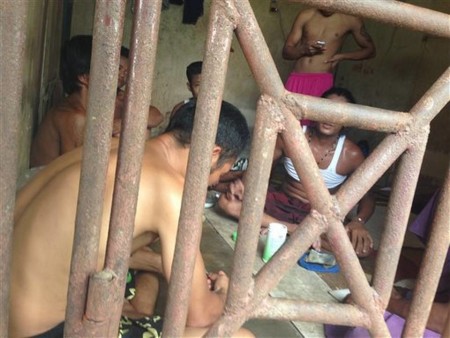Seafood caught in Indonesia by slave workers may be being sold in supermarkets and restaurants worldwide, according to a year-long investigation by The Associated press.

AP interviewed more than 40 Burmese “slaves” who are forced to work for long hours on the Indonesian tropical island of Benjina, thousands of miles from their home. Investigators also found a locked cell with eight slaves inside, and handed a video camera to a dockworker, himself a former slave, to take close-up footage.
Under the cover of darkness, the AP team used a small wooden boat to approach a trawler with slaves who yelled to them, pleading for help to go home. The interviewees said they were brought to Indonesia through Thailand, which is where their catch is shipped to before it joins a chain of global commerce.
The workers claimed they were paid very little money and forced to work for up to 20 hours a day, they could not eat the fish they caught and were forced by their captains to drink unclean water. Many of them also said they were beaten if they complained or tried to rest.
One interviewee said: “It’s torture. When we get beaten, we can’t do anything back. … I think our lives are in the hands of the Lord of Death.” Another said: “If Americans and Europeans are eating this fish, they should remember us. There must be a mountain of bones under the sea. The bones of the people could be an island, it’s that many.”
According to AP: “Here, in the Indonesian island village of Benjina and the surrounding waters, hundreds of trapped men represent one of the most desperate links criss-crossing between companies and countries in the seafood industry. This intricate web of connections separates the fish we eat from the men who catch it, and obscures a brutal truth: Your seafood may come from slaves.
“In November of last year, the Jakarta Globe reported that the country is a “Hive of Modern-Day Slavery.” A study by the Walk Free Foundation found that “as many as 714,000 people in Indonesia have fallen victim to modern slavery practices… “
Major corporations issued statements condemning enslavement and that they committed to ending forced labour, when they were contacted about their involvement in the supply chain.
AP said that Thailand’s biggest seafood company, Thai Union Frozen Products, cut ties with a supplier named in the investigation.
Thai Union said in a statement that if found AP’s findings “utterly unacceptable,” but refused to indicate which company it cut ties with.









